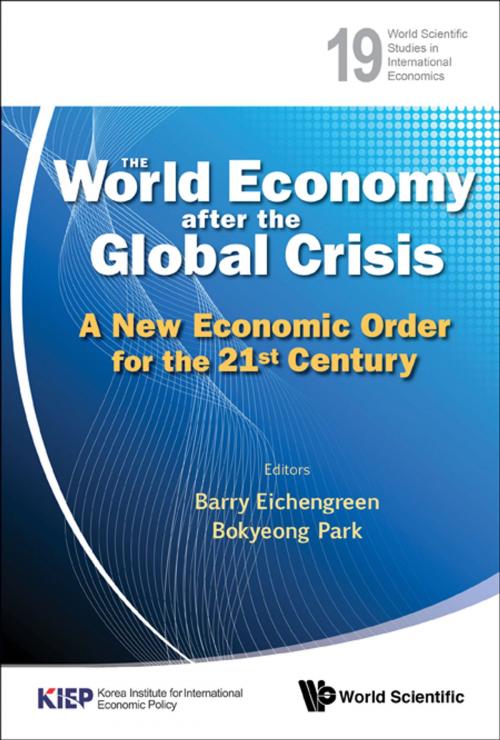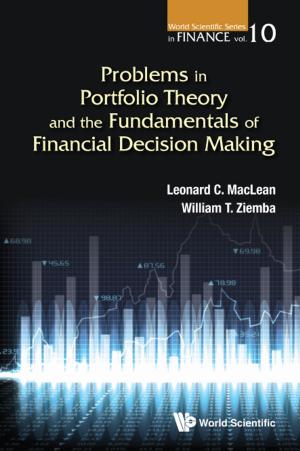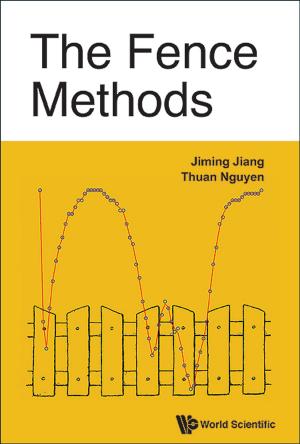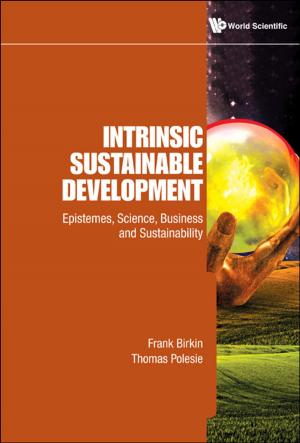The World Economy after the Global Crisis
A New Economic Order for the 21st Century
Business & Finance, Economics, International Economics, Finance & Investing, Finance| Author: | Barry Eichengreen, Bokyeong Park | ISBN: | 9789814452205 |
| Publisher: | World Scientific Publishing Company | Publication: | April 26, 2012 |
| Imprint: | WSPC | Language: | English |
| Author: | Barry Eichengreen, Bokyeong Park |
| ISBN: | 9789814452205 |
| Publisher: | World Scientific Publishing Company |
| Publication: | April 26, 2012 |
| Imprint: | WSPC |
| Language: | English |
The global credit crisis of 2008–2009 was the most serious shock to the world economy in fully 80 years. It was for the world as a whole what the Asian crisis of 1997–1998 was for emerging markets: a profoundly alarming wake-up call. By laying bare the fragility of global markets, it raised troubling questions about the operation of our deeply integrated world economy. It cast doubt on the efficacy of the dominant mode of light-touch financial regulation and more generally on the efficacy of the prevailing commitment to economic and financial liberalization. It challenged the managerial capacity of inherited institutions of global governance. And it augured a changing of the guard, pointing to the possibility that the economies that had been the leaders in the “global growth stakes” in the past might no longer be the leaders in the future.
What the crisis means for reform, however, is still unclear. This book brings together leading scholars and policy analysts to describe and weigh the options. Successive chapters assess options for the global financial system, the global trading system, the international monetary system, and the Group of 20 and global governance. A final set of chapters contemplates the policy challenges for emerging markets and the advanced economies in the wake of the financial crisis.
Contents:
- Introduction
- Financial Reform after the Crisis
- Did WTO Rules Restrain Protectionism During the Recent Systemic Crisis?
- The International Monetary System after the Financial Crisis
- The Group of 20: Trials of Global Governance in Times of Crisis
- Emerging Markets in the Aftermath of the Global Financial Crisis
- Challenges for Emerging Asia
- Long-Term Challenges for the Advanced Economies: Reducing Government Debt
Readership: Students and researchers in the fields of international economics, macroeconomics, finance and development.
Key Features:
- Gives comprehensive treatment covering trade, finance, macroeconomics and development policy
- Combines the perspectives of leading analysts from North America, Europe and Asia
- Contains accessible technical
The global credit crisis of 2008–2009 was the most serious shock to the world economy in fully 80 years. It was for the world as a whole what the Asian crisis of 1997–1998 was for emerging markets: a profoundly alarming wake-up call. By laying bare the fragility of global markets, it raised troubling questions about the operation of our deeply integrated world economy. It cast doubt on the efficacy of the dominant mode of light-touch financial regulation and more generally on the efficacy of the prevailing commitment to economic and financial liberalization. It challenged the managerial capacity of inherited institutions of global governance. And it augured a changing of the guard, pointing to the possibility that the economies that had been the leaders in the “global growth stakes” in the past might no longer be the leaders in the future.
What the crisis means for reform, however, is still unclear. This book brings together leading scholars and policy analysts to describe and weigh the options. Successive chapters assess options for the global financial system, the global trading system, the international monetary system, and the Group of 20 and global governance. A final set of chapters contemplates the policy challenges for emerging markets and the advanced economies in the wake of the financial crisis.
Contents:
- Introduction
- Financial Reform after the Crisis
- Did WTO Rules Restrain Protectionism During the Recent Systemic Crisis?
- The International Monetary System after the Financial Crisis
- The Group of 20: Trials of Global Governance in Times of Crisis
- Emerging Markets in the Aftermath of the Global Financial Crisis
- Challenges for Emerging Asia
- Long-Term Challenges for the Advanced Economies: Reducing Government Debt
Readership: Students and researchers in the fields of international economics, macroeconomics, finance and development.
Key Features:
- Gives comprehensive treatment covering trade, finance, macroeconomics and development policy
- Combines the perspectives of leading analysts from North America, Europe and Asia
- Contains accessible technical















